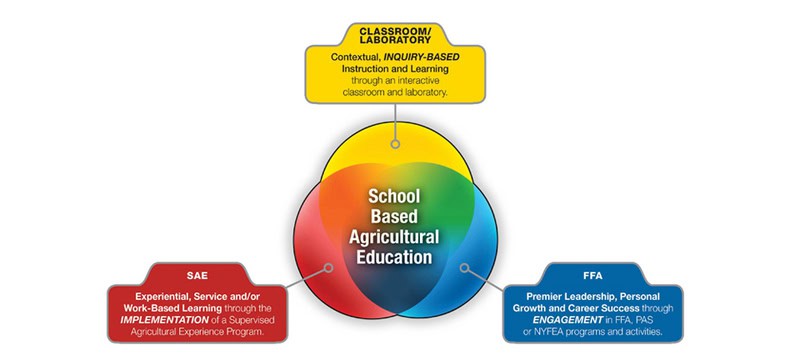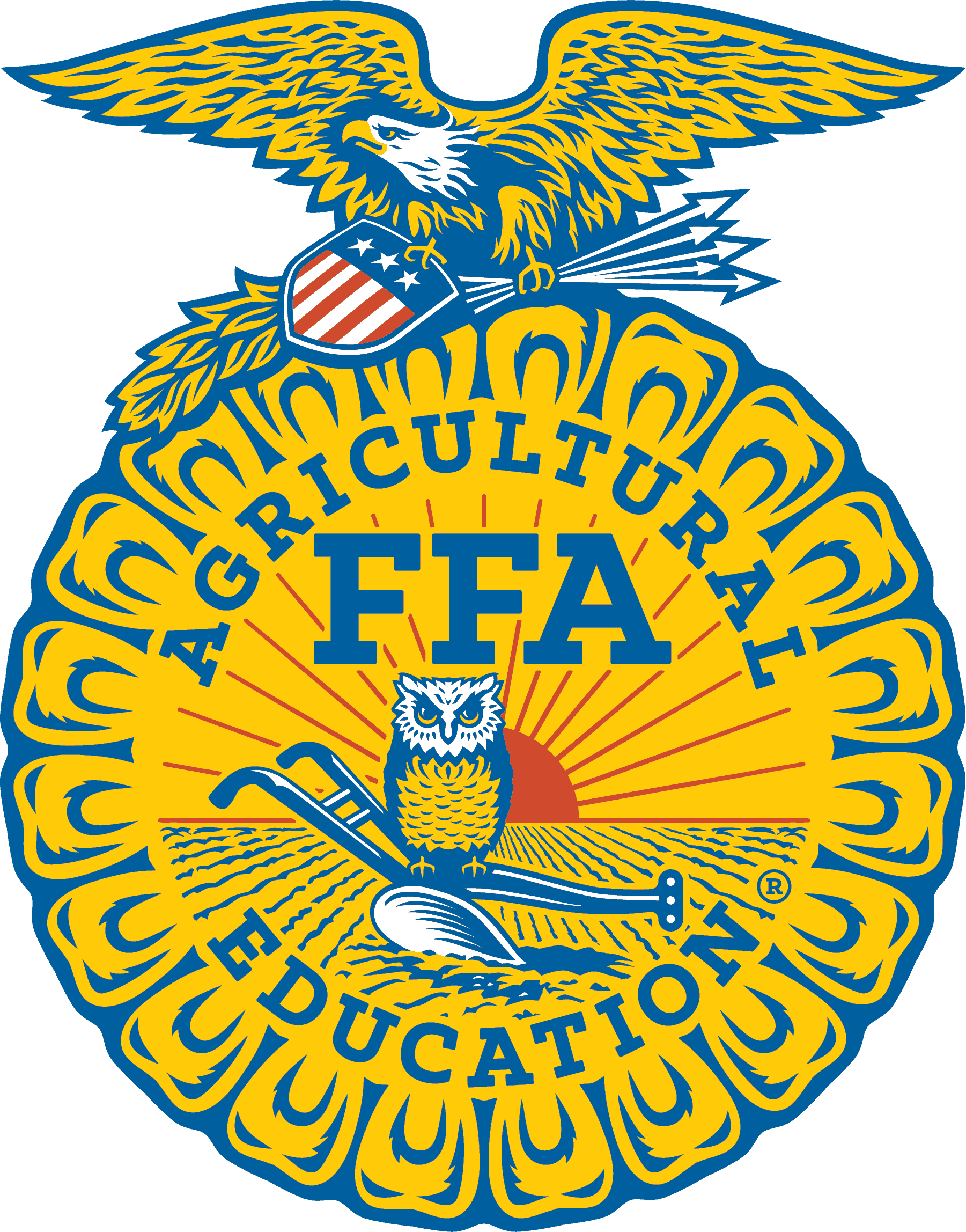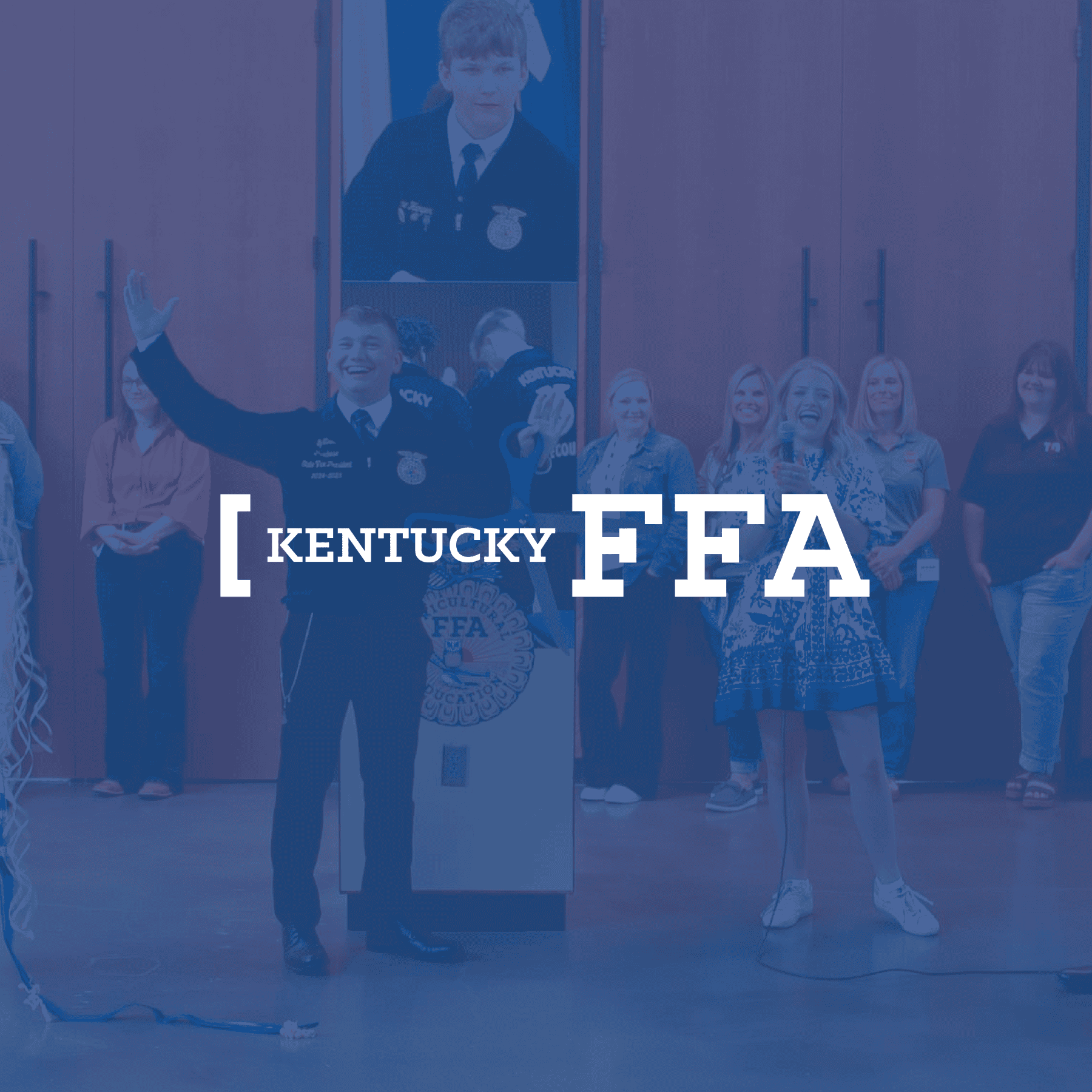Agricultural Education Model
Agricultural Education is composed of three distinct, inter-related components: Classroom & Laboratory Instruction; Experiential Learning, and Leadership Development. In order for a program to be most effective all three components must be in place and active.

Classroom & Laboratory Instruction
In the classroom, students are introduced to concepts and theories dealing with a wide range of agricultural topics, based on state academic and occupational standards. Classroom instruction is followed by laboratory instruction, where the concepts and theories can be carried through to their real world applications. Students then learn by doing through hands-on practice.
Experiential Learning
Skills learned through classroom and laboratory instruction are further developed and reinforced through the work based learning component of the program, known as Supervised Agricultural Experience (SAE). Students plan, carry out and keep records on their SAE’s. This component allows the student to work and learn in a real-world setting and to develop the skills needed for college and career readiness.
Leadership Development – FFA Student Organization
The co-curricular student organization, FFA, provides an avenue for students to “develop premier leadership, personal growth and career success, through agricultural education.” FFA offers students many ways to develop and grow as a person. It provides incentive for improved student performance through its awards, scholarships, and leadership programs.





